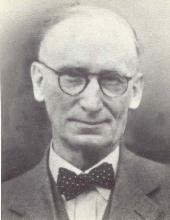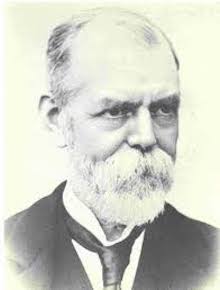We are already through August – this year’s seems to be going fast – at least the Lord’s coming is fast approaching.
In the past month, through ADOSS, I have had a number of very interesting conversations with fellow believers, and I am sure God is working in many ways. Would to God that there were more who were interested in heavenly truth! But we can be very thankful that there are many who desire to call upon the Lord out of a pure heart, although separated into many groups ecclesiastically. I do not believe that we will ever be together here – the public position will never be repaired – but the Lord is coming soon and we will be together then. As the hymn put it
What will it be when all the strife is over,
And all Thy saints, now scattered far and wide,
Shall be without one shade of variation,
All like Thee, Lord, united by Thy side!
Little Flock No 421
Anne Ross Cousin (1824-1906)
In the correspondence that I have had I am concerned that we do not become over-focussed on certain aspects of the truth and give too much emphasis to them. They are often areas of contention, and I would seek to avoid what is contentious – ‘But foolish and unlearned questions avoid, knowing that they do gender strifes’ (2 Tim 2:23). I am not saying that the things that follow are of that ilk. They are important, but are subjects where there can be a lot of unprofitable discussion. There are areas where scripture is not clear – deliberately so I believe – so I am content to say that I do not know the answers to them, and am happy to leave that knowledge to a future day. Of course I do not criticise those who believe that they have a clear view of the answers – maybe if I were closer to the Lord, I might see things differently.
Examples of these are as follows:
Creation
There has been much discussion as to whether there is a long interval between verses 1 and 2 in the first chapter of Genesis – referred to as the ‘gap theory’. I was brought up to believe that there could have been many millions of years between the two verses. Now I would say that I do not know, and I am content to leave the answer to that future day when things will be revealed. In Gen 1 we read that the earth was waste and empty. But in Isa 45:18 (Darby translation) it says ‘For thus saith Jehovah who created the heavens, God himself who formed the earth and made it, he who established it, — not as waste did he create it: he formed it to be inhabited.’ So what was there beforehand? Darby, Schofield and others of that time had the same view. Darby wrote, ‘Scripture, which does not reveal scientific facts, is totally silent as to them (facts of geology), but leaves a gap which may have been filled by millions of years when we were not (which no man could find out — so horribly stupid was man without a revelation), namely, that God made it. If He did not, who did?’ J.N.Darby Apologetic No.2 Vol 9 p111 – ‘And What has Geology Proved?’
Others would say, on the authority of scripture, that the earth was heavens and earth and all the rest of creation was created in a little period of six literal days. It was created complete, along with fossils and dinosaur bones. They say that the Hebrew word ‘yom’ refers to a day of 24 hours. Other words are used to express ‘day’ in the sense of ‘age’ or ‘era’. I do not know which of these views is correct. Some of my readers may have very strong views and I do not want to offend them, but I say let’s be content to wait. God will make it clear.
Prophecy
This is an important subject, occupying a large amount of the bible, and we are to be intelligent as to what is to come. However I am concerned about spending too much time on this subject. The dispensation that we are in does not come into prophecy: therefore prophetic writings do not relate directly to the church period. We can learn from prophetic writings of course, and apply them morally, not literally, to our own time, as we pursue heavenly truth. Most importantly is to keep near the Lord.
The Sonship of Christ
Sometimes I get letters and emails saying that since I am a ‘Ravenite’ (I don’t accept this term), that I must believe that the Lord Jesus was not eternally Son. The truth is that I do not know, and again I am content to leave the answer to this to a future day. We all agree that our Lord is eternal – He was, He is and He will be. He is also the Son of God. Hence I have no problem with the expression ’the eternal Son of the Father’ as He is both Son and He is eternal. Does the scripture ‘Thou art my Son; this day have I begotten thee’ (Psalm 2:7), signify that the relationship of ‘Son’ came about at the incarnation? Darby seems to have thought otherwise – See ‘The Eternal Sonship of Christ’ Miscellaneous Vol p 265 (Published by BTP). In 1929 James Taylor Sr, was asked by Samuel Carter ‘Would ‘marked out Son of God in power, according to the Spirit of holiness, by resurrection of the dead’ (Rom 1:4), be His eternal sonship?’ His reply was, ‘I do not know that there is such a term in Scripture as eternal sonship. The Son of God is announced in Scripture after the Lord Jesus was here. In Luke 1:35 it says, ‘The holy thing also which shall be born shall be called Son of God’ (Vol 29 p 361). Note that Taylor was not dogmatic as to the relationship, though later he said that ‘sonship in Christ implies His manhood’ (Vol 49 p288) – accessible through goodteaching.org .
A hymn I like says:
What that love no thought can fathom;
Nor can human lips define
Those relationships eternal,
All inscrutable, divine!
Little Flock No 117
A G Doughty (1892-1949)
The Lord’s Day
I have not had much contact recently with Seventh-Day Adventists but have had in the past. They and others, believe that the Lord’s resurrection was on Saturday and therefore that is the day that we should set aside for His service. When challenged as to which day of the week the Lord was crucified, I normally answer, ‘Probably Wednesday’. Then, ‘Which day of the week was He raised?’ I normally answer, ‘Probably Saturday – so?’ The first day of the Passover would have been a Thursday. Three days and three nights lead to the events of action being late on Saturday in our reckoning. But if after sunset that would be the first day of the week. So there is no big argument here. That they broke bread on this day in Troas is for sure (See Acts 20:7).
Maybe be balanced and keep near the Lord holding the truth in love.
God’s blessings
Sosthenes.
September 2016











